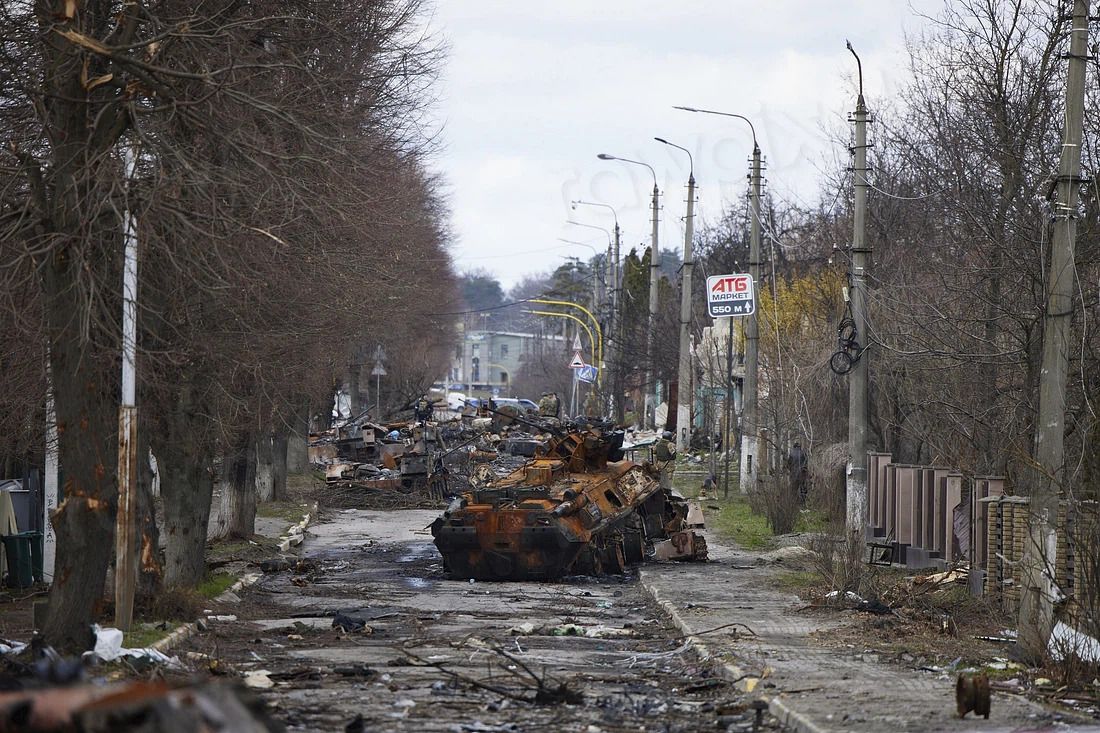By Deniz Yıldırım
The energy crisis, rising food and rent prices, the highest inflation in the last 70 years…
The cost of supporting Ukraine is becoming more burdensome every day. Since February 2022, the German government has allocated approximately 34 billion euros in support to Ukraine and Ukrainians. Germany ranks second after the US.
However, support for Ukraine is being increasingly questioned in Germany. The backlash against the federal government’s policies led to losses for the coalition parties in all German states and most recently in the European Parliament elections. The Atlanticist government, failing to meet the demands of workers, farmers and the people in general, is almost certain to lose the June 2025 elections.
No more funds to Ukraine in the new budget plan
In this context, an interesting development was reported by Frankfurter Allgemeine Zeitung (FAZ) on August 19. The article stated, “Germany is cutting military and financial support to Ukraine after 2024 and 2025 commitments and plans. According to the current budget plan of the federal government, there are no new funds for this purpose. This is due to austerity measures by the Chancellor’s Office and the Ministry of Finance”.
On August 5, Finance Minister Christian Lindner sent a letter to Foreign Minister Annalena Baerbock (from the Greens) and Defense Minister Boris Pistorius (from the SPD), stating that any future aid decisions should be made only when “financing being secured”. FAZ also wrote that the government intends to find such funds not from the German budget, but from Russian assets seized under international sanctions.
According to the German press, Germany’s support for Ukraine, which has been increasing since the start of the war, amounted to 7.1 billion euros this year, but under the new budget plan, this will decrease to 4 billion euros next year. By 2026, it will be 3 billion euros and 1 billion euros total in 2027 and 2028.
According to the information in the press, Germany has no choice but to curb its spending due to the “constitutional debt brake” that limits the amount of debt the country can incur. So, there is little doubt that aid to Ukraine will be reduced.
The Greens are not happy
More than 150 members from the realpolitik wing of the Green Party published an open letter calling on the party leadership and the Federal Parliamentary Group to take the necessary steps to reverse this decision. Politicians, including experienced figures such as Daniel Cohn-Bendit, Rebecca Harms, Marieluise Beck, and Rolf Fücks, harshly criticized the government of by the SPD, Greens and the FDP: “The budget compromise, which includes halting financial and arms aid to Ukraine, will weaken the Ukrainian army, affecting the course of this war. The budget agreement gives the impression that the German debt brake is more important than the life and survival of an attacked European nation”. And Ukraine’s Ambassador to Berlin, Oleksii Makeiev said that aid should not be cut and added: “Europe’s security depends on Germany’s ability to continue its support for Ukraine”.
“Parties could approach Russia again”
In an analysis published by wPolityce, one of Poland’s most-followed media outlets, the future of German politics is described as follows:
“The combination of political instability and an economic slump could strengthen the forces in Germany that are genuinely in favor of an agreement with Russia and dream of a return to the ‘good old days’. This does not necessarily have to take the form of an electoral triumph for the AfD or Wagenknecht: an increase in support for these groups will suffice. Then, in response to the public mood, the mainstream parties could decide to rethink their policies on the key issue – at least for us – namely their stance on Russia.”
The ruling parties in great losses
At this point, both polls and state elections proved that the government’s increasing support for Ukraine, especially Foreign Minister Annalena Baerbock’s hawkish stance like a war minister, have been met with a strong backlash from German voters. The Green Party’s far harsher anti-Russia and anti-China policies compared to their coalition partners and the warmongering rhetoric played a significant role in this outcome. Also, the ongoing discord within the government led to the question “Who is truly governing the country?”
The ruling parties lost votes in the European Parliament elections, while the nationalist AfD and the left-wing BSW gained. The results reshaped the political landscape.
Greens’ war rhetoric and the propaganda-driven pressure to get involved in the Ukraine war could pursue Germans in the midst of the energy crisis. The closure of the last three nuclear power plants in Germany on April 15 was seen as another major misstep in energy policy. The plans under the “Building Energy Act” (Heizungsgesetz), which requires that heating systems in new and existing buildings consume at least 60% renewable energy starting from 2024, also aroused a strong opposition from voters.
















Leave a Reply